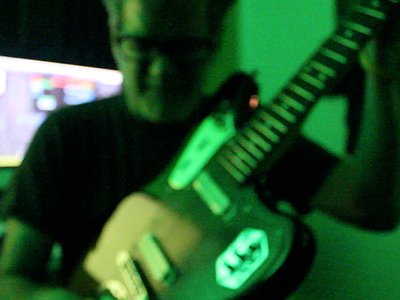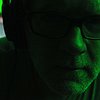Part 2
How strictly do you separate improvising and composing?
It begins with improvisation and experimentation, which is then shaped into a composition. I usually begin with drums and bass. Then I look for interesting sounds, these usually derive from live vinyl recordings from the 70’s. Experimenting with these samples, through manipulation is my favourite part of the process. Once I have a foundation with some interesting sounds and possibly a melody, I give the tracks to a musician to improvise on during particular sections. I then take those parts, cut them up, rearrange them, and react to them to create a composition. "The Kids Want A Little Action" was created from tracks that were recorded for another song. The unused improv takes were too good to leave on the cutting room floor so a new composition was born.
How do you see the relationship between sound, space and composition and what are some of your strategies and approaches of working with them?
They are interrelated. They are the foundation of crafting songs. I work with them by trusting my process.
What's your perspective on the relationship between music and other forms of art – painting, video art and cinema, for example – and for you and your work, how does music relate to other senses than hearing alone?
The one constant I hear people say regarding my music, is that it is cinematic. Having studied photography at The San Francisco Art Institute I enjoy that reaction. It makes perfect sense that so many musicians experiment in other creative mediums. From my experience, the process of making art whether it be painting, photography, film, or music is the same—it's the act of discovery, working with intent, trusting yourself, and letting your filters guide you.
What's your view on the role and function of music as well as the (e.g. political/social/creative) tasks of artists today, and how do you try to meet these goals in your work?
The role of art hasn’t changed today from any other day. The role isn’t singular. People are meant to do certain things; creative people need to create. Society needs creation.
Listening is also an active, rather than just a passive process. How do you see the role of the listener in the musical communication process?
The Grassy Knoll’s music is not background music; it is music that warrants your attention. I am creating sonic landscapes with the hope that each listen reveals something new.
Reaching audiences usually involves reaching out to the press and possibly working with a PR company. What's your perspective on the promo system? In which way do music journalism and PR companies change the way music is perceived by the public?
Social media gives an artist an instant avenue to connect with listeners. What’s missing from the social media model is the curator, which is what record labels, music reviewers, and magazines provide. Fortunately, there are still taste-makers writing and creating audiences for musicians, such as blogs like Pitchfork, Stereogum, and Brooklyn Vegan.
Just look at what Pitchfork did for Arcade Fire. Plus, if it wasn’t for good PR, I wouldn’t even be doing this interview right now.
Do you have a musical vision that you haven't been able to realize for technical or financial reasons – or an idea of what music itself could be beyond its current form?
I had an artist residency in NYC at Pianos back in 2004. I assembled pre-MTV footage of musicians from all genres, created audio loops with the clips and essentially used Final Cut Pro as a sequencer that just so happened to have the associated visuals attached. I would project the movies onto and behind me while accompanying them on bass. Steve Cook on drums, Rostropovich on cello, Coltrane on sax, KK Downing on guitar—the possibilities were endless as long as I could keep finding fresh clips! It became an obsession and kind of expensive.
Seen with today’s eyes these so-called mash-ups probably might not seem as fresh/original as they were back then but they were fun to make. Some of those movies/songs can still be found on the Grassy Knoll’s YouTube page. I would like to take this idea to the next level but as I mentioned earlier during this interview I need software similar to Ableton Live to treat video clips in a certain way and so far it isn’t happening.
Visit Grassy Knoll's webiste at www.thegrassyknollmusic.com






